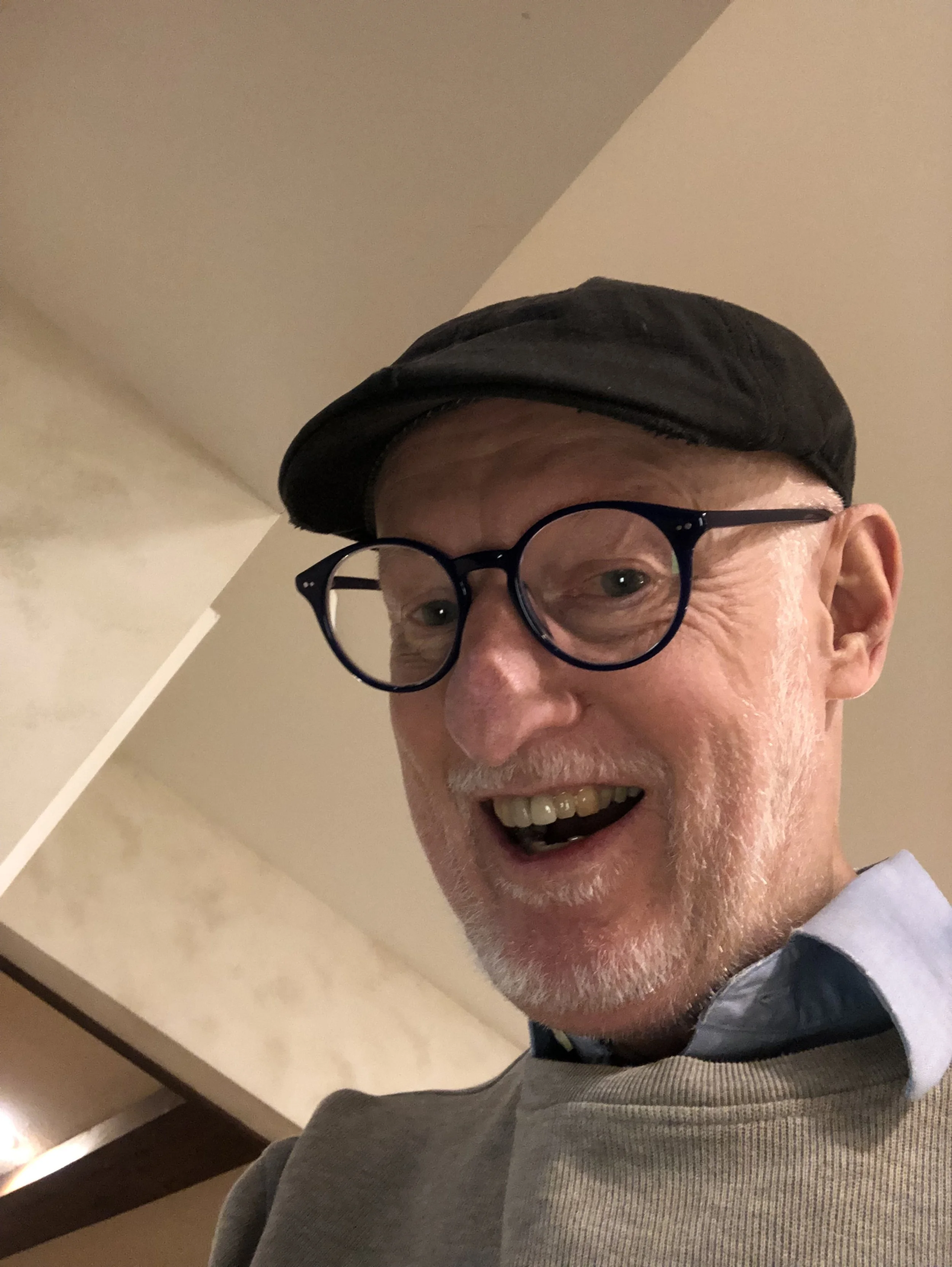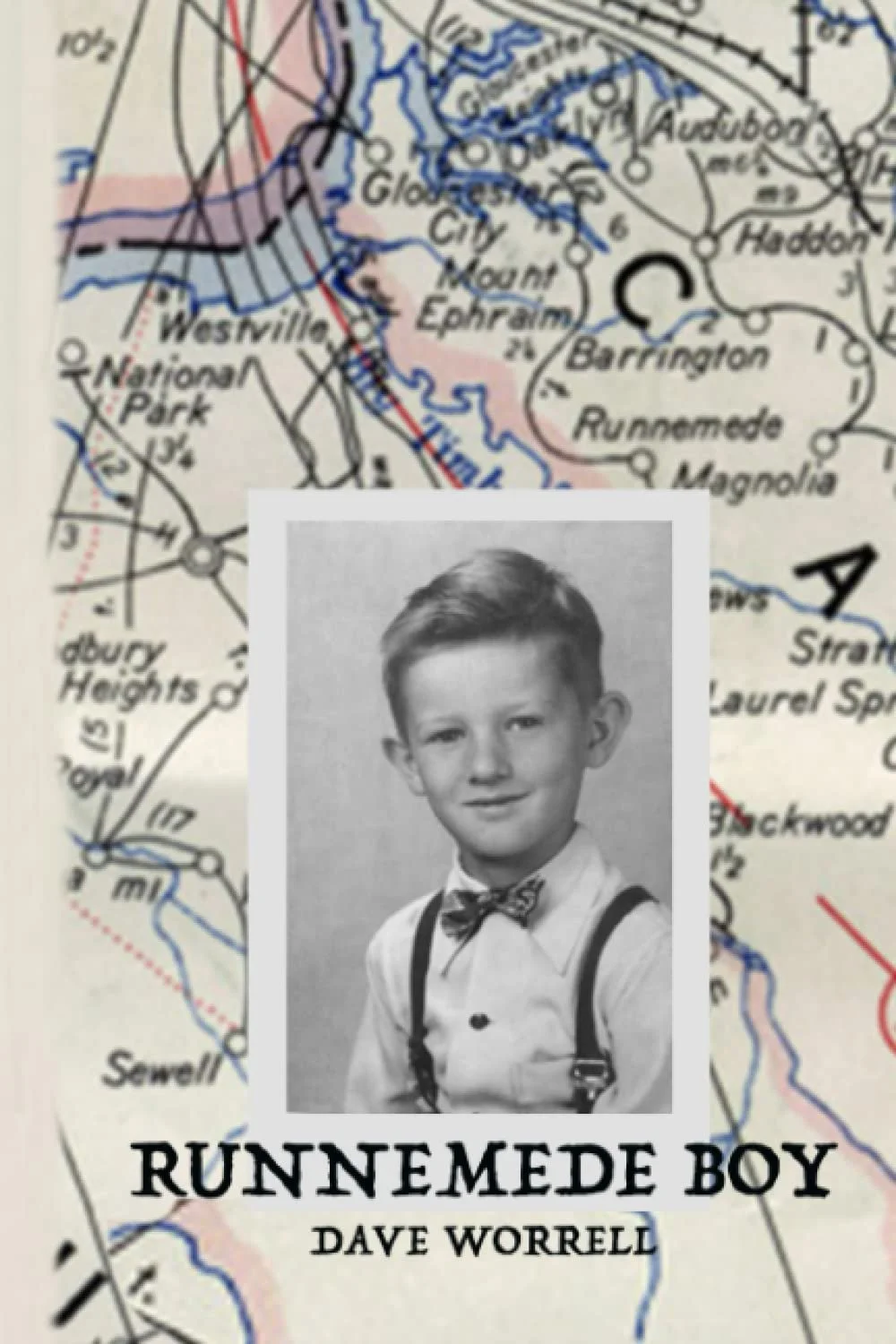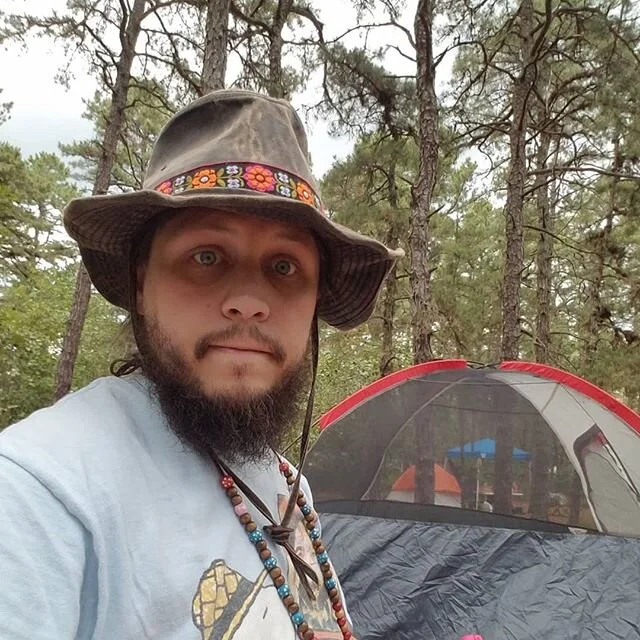Snapshots
by Dave Worrell
At seventeen months,
on the dining room floor,
I sit bent over my alphabet book,
my chubby fingers reach
to turn the page.
In the back yard,
at four years old,
in a Lone Ranger cowboy hat—|
twin six-shooters dangle from my waist.
First day of kindergarten, short
pants and polo shirt,
me and two neighborhood buddies
drape our arms over each others’ shoulders.
With little Jimmy, at Christmastime—
together we watch Howdy Doody
on our tiny new Magnavox.
I sit behind my Hot Shot drum set.
The following Christmas,
still toting six-shooters,
I’m gazing at the Nativity scene
that Mother had put
on the dining room hutch.
Little Jimmie, three years old,
is pointing at the barnyard animals.
My first grade teacher wrote:
David daydreams now and then,
but comes back to us when we really need him.
He could use more practice carefully
coloring inside the lines.
Why is poetry your artistic medium? How did you get started with poetry?
I learned in about the second grade that my drawing skills would never develop beyond the stick–person level. I played trumpet for three years during my teens, but never got beyond the point where my lip hurt. A high school female friend and I shared a love of reading—Sallinger, Huxley, Orwell and, notably, classical haiku and T.S. Eliot. I was a lit major in college and studied all the greats and since clearly I could never hope to create at that level, I was inhibited from even trying until I reached the age of 56 at which point I figured what the hell and began trying to write poems. Why poetry and not fiction or playwrighting? Probably practical reasons, since I was working full-time until age 63, and part-time for another 10 years. It seemed more feasible to create works of between 10 to 30 lines, and perfect them as best I could, than to compose 300 pages of fiction.
What is your creative process like? How do you get from all possible blank page to a finished work?My poems spring from a variety of muses/stimuli–interactions with friends and loved ones, baseball, solitary experiences, random images, jazz; speculation on life, love and death. Also, see below the Answer, below concerning how I transform memory into poetry.
You have been a longtime open mic host. What draws you to the open mic poetry scene? What makes for a successful open mic?
I try to listen carefully and seize upon something in the poems that resonates with me so I can make comments that communicate appreciation and connection. We all started out at some point, unsure whether our work was worthy. Novice poets need encouragement and thrive on it.
Your debut poetry collection, Runnemede Boy, is out now. Tell us a little about it.
It is a kind of memoir in verse form—a story of a boy growing up In the 1950s and 60s in a small blue-collar town in Camden County, New Jersey. While not everyone experienced the full benefit of post-World War II prosperity—let’s face it: it was a time of significant remaining racial injustice—it was a fortunate, wonderful time of nearly-full employment, strong unions, and decent, living wages for our family and those like us. My book tries to capture that era through the eyes of a child/adolescent.
What is your strategy for transforming memory into poetry?
My best answer is: from the moment my brain conceives the kernel of a poem, I write it down as quickly as possible, try not to edit or refine it at all in that first rough draft. Then, revise, revise, revise, get advice from peers, critique groups, etc. and then revise and revise some more. Repeat that cycle a few times until I’m satisfied that I can’t make the poem any better. That process can take anywhere from a few months to a few years.
Do you have any upcoming events? Where can readers read more of your work /buy your book?
October 11, 6 PM, Northeast Philly Library 2228 Cottman Ave.
October 20, 7 PM, Inkwood Books, 106 Kings Highway East
November 1, 7 PM, Wallingford Community Arts Center, 414 Plush Mill Road, Wallingford
The book also is available on Amazon.
Dave Worrell’s verse memoir, Runnemede Boy, was published by Parnilis Media in 2023. His chapbook, We Who Were Bound, was published in August 2012 by Casa de Cinco Hermanas Press. His limited-edition ekphrastic collection, Close to Home, appeared in 2015, featuring paintings by Catherine Kuzma. Dave’s poems have appeared in Slant, Canary, Shot Glass Journal, Painted Bride Quarterly, Schuylkill Valley Journal, U.S. 1 Worksheets, Exit 13 and elsewhere. He has performed his music-backed poems at Chris’ Jazz Café in Philadelphia and The Cornelia Street Café in New York.
John Wojtowicz grew up working on his family’s azalea and rhododendron nursery in the backwoods of what Ginsberg dubbed “nowhere Zen New Jersey.” Currently, he works as a licensed clinical social worker and adjunct professor. He has been featured on Rowan University’s Writer’s Roundtable on 89.7 WGLS-FM and several of his poems were chosen to be exhibited in Princeton University's 2021 Unique Minds: Creative Voices art show at the Lewis Center for the Arts. He has been nominated 3x for a Pushcart Prize and serves as the Local Lyrics contributor for The Mad Poets Society Blog. His debut chapbook Roadside Oddities: A Poetic Guide to American Oddities was released in early 2022 and can be purchased at www.johnwojtowicz.com. John lives with his wife and two children in Upper Deerfield, NJ.



